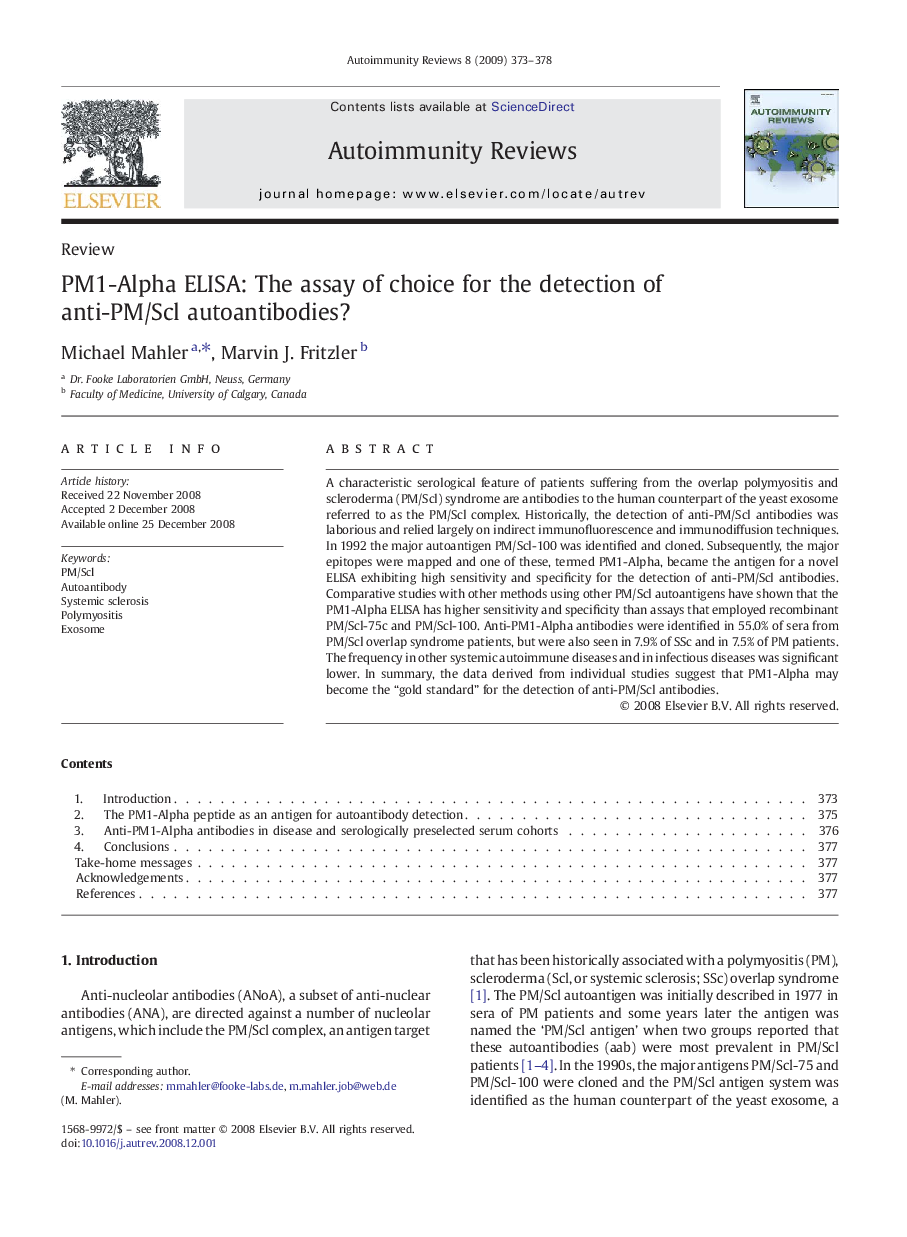| Article ID | Journal | Published Year | Pages | File Type |
|---|---|---|---|---|
| 3342323 | Autoimmunity Reviews | 2009 | 6 Pages |
A characteristic serological feature of patients suffering from the overlap polymyositis and scleroderma (PM/Scl) syndrome are antibodies to the human counterpart of the yeast exosome referred to as the PM/Scl complex. Historically, the detection of anti-PM/Scl antibodies was laborious and relied largely on indirect immunofluorescence and immunodiffusion techniques. In 1992 the major autoantigen PM/Scl-100 was identified and cloned. Subsequently, the major epitopes were mapped and one of these, termed PM1-Alpha, became the antigen for a novel ELISA exhibiting high sensitivity and specificity for the detection of anti-PM/Scl antibodies. Comparative studies with other methods using other PM/Scl autoantigens have shown that the PM1-Alpha ELISA has higher sensitivity and specificity than assays that employed recombinant PM/Scl-75c and PM/Scl-100. Anti-PM1-Alpha antibodies were identified in 55.0% of sera from PM/Scl overlap syndrome patients, but were also seen in 7.9% of SSc and in 7.5% of PM patients. The frequency in other systemic autoimmune diseases and in infectious diseases was significant lower. In summary, the data derived from individual studies suggest that PM1-Alpha may become the “gold standard” for the detection of anti-PM/Scl antibodies.
